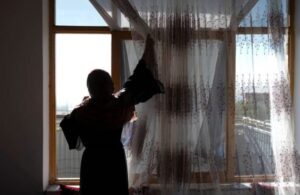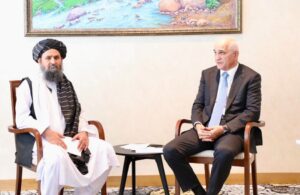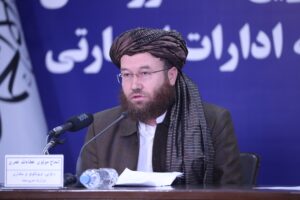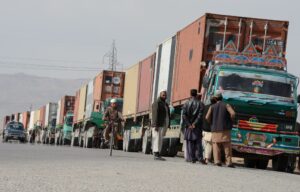KABUL (SW) – The disbanded Afghanistan Independent Human Rights Commission has called for the release of two frontline women rights activists in the country.
In response to the arrest of Narges Sadat, a civil activist, and Ismail Meshaal, a university professor, The AIHRC said that these arrests have caused civil activists, especially women’s rights activists, to be in a difficult situation.
Meanwhile, Supreme Court officials of the Islamic Emirate say that civil activists are considered “unarmed rebels” and their cases will be reviewed like any other case in a military court.
On Saturday, the disbanded AIHRC released a newsletter in connection with the arrest of Ismail Meshaal and Narges Sadat and stated that the recent arrests have caused concern among the citizens and this issue will add to the political, economic and social difficulties of the people.
On the other hand, civil activists in the country say that they cannot even live in their homes for fear of being arrested.
Zakia Zahadat, a civil activist, who has repeatedly raised her voice for the right of girls and women to access education and work, said that these days she has to live in secret for fear of being arrested.
“The security conditions these days are generally difficult for civil activists and more so for protesting girls. Many civil activists and protesting girls were arrested, their mental state is not good, they do not feel safe and it is very difficult to go to prison in this traditional society. All the protesting girls I know change their addresses every day and live their lives in fear.”
Similarly, Sona Farangyar, another civil activist, said that their situation is worrying. According to her, she is on the run from one province to another for fear of being arrested.
“I was a student in one of the private universities,” added Ms Farangyar. “During the exam, they tore my paper and did not allow me to take the exam. When I raised the voice, the order for my arrest was issued later. Is education not my right? Today I live in isolation and I have suffered from mental illnesses. What crime have I committed that they want to arrest me?”
On the other hand, Shaharzad Akbar, the head of the disbanded AIHRC, has said that after the political developments in the country, the space for civil society and civil activists has become narrower. “The legal framework that previously existed for civil activists, like the constitution, has now been revoked and the unions and structures that worked for civil activists, either their members have gone abroad or had to go into hiding. Now, a difficult situation has arisen for civil activists, and arrests and disappearances have created a frightening situation for all.”
However, Inayatullah Hafez, the spokesperson of the Supreme Court, has said that the cases of the detained activists will be investigated and resolved in a military court.
“Civil activists, who are among unarmed rebels, their cases are related to the Public Security Court, and now it has been decided that, like other cases, they will be related to the military court and the cases will be resolved there.”
ENDS






